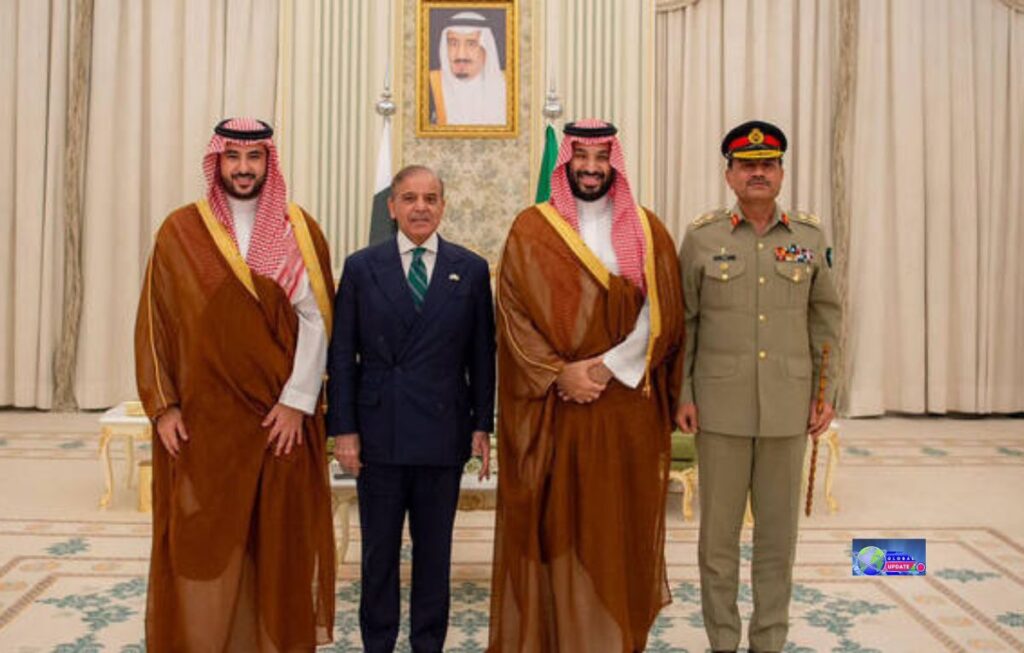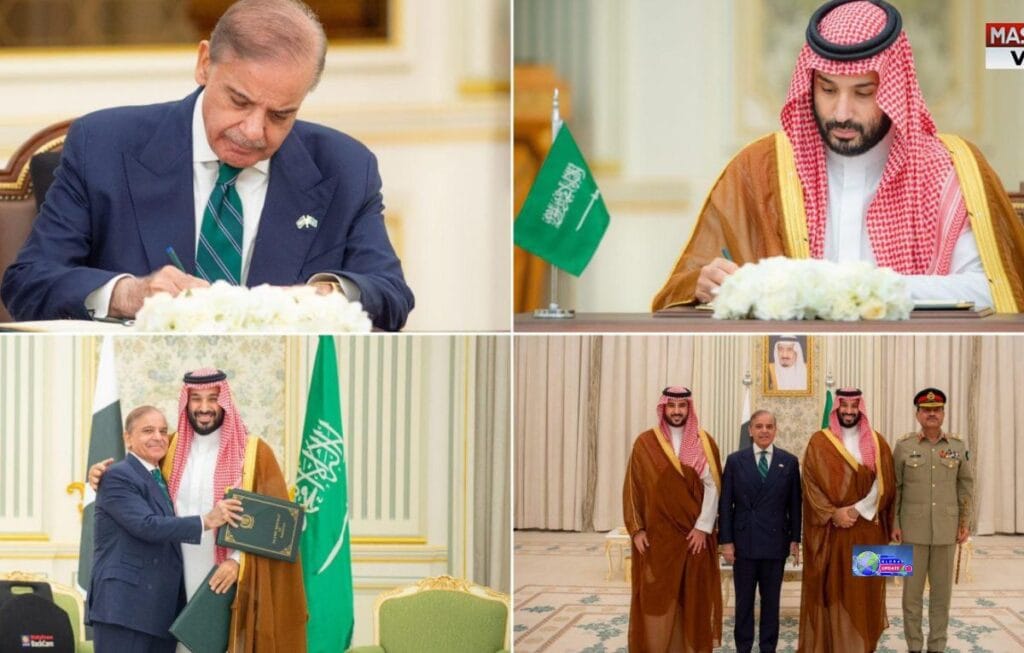Shehbaz Sharif, the Prime Minister of Pakistan, visited Saudi Arabia, where the Islamabad-Riyadh Pact declared Pakistan the ‘Net Security Provider’ for the Arabian Peninsula.

Background
- On September 17, 2025, Prime Minister Muhammad Shehbaz Sharif visited Riyadh, Saudi Arabia, at the invitation of Crown Prince and Prime Minister Mohammed bin Salman.
- The visit marked a significant turning point in Pakistan-Saudi relations, building on nearly eight decades of strategic and defence cooperation, shared religious bonds, and historical diplomatic ties.
Strategic Mutual Defence Agreement (SMDA)
- The two countries signed the Strategic Mutual Defence Agreement, under which “any aggression against either country shall be considered an attack on both.”
- The pact aims to deepen defence cooperation, strengthen joint deterrence against aggression, and formalise mutual security obligations.
What It Means: Pakistan as ‘Net Security Provider’
- With this agreement, Pakistan assumes a more formal and prominent security role in protecting not just its borders but also helping safeguard Saudi Arabia, which lies at the heart of the Arabian Peninsula. This moves Pakistan’s defence cooperation from informal or historical ties to legally binding obligations.
- Analysts see the deal as Saudi Arabia’s effort to diversify its security partnerships amid shifting regional dynamics—including concerns over U.S. reliability and rising tensions in the Middle East.
Key Provisions & Features.
- The agreement emphasises joint deterrence: both nations will coordinate to prevent possible aggressions against either side.
- Defence cooperation will cover conventional military capabilities. There is news speculation but no public confirmation that nuclear components are explicitly part of the pact.
- High-level military and political leaders involved in the discussions included Shehbaz Sharif, Crown Prince Mohammed bin Salman, and Pakistani Army Chief Field Marshal Asim Munir

Implications for the region.
- The agreement could potentially change the regional security balance, particularly in light of the Gulf states’ efforts to counter Iran. The rising tensions involving Israel and the evolving commitments of the United States are significant factors to consider.
- The agreement enhances Pakistan’s strategic status, positioning Islamabad not only as a beneficiary or partner, but also as an active guarantor of regional security. This could bring more diplomatic weight, but also comes with increased responsibilities.
Challenges & Potential Risks.
- Matching obligations in practice: defence cooperation is costly and complex. Effective implementation of joint exercises, intelligence sharing, and readiness will be crucial.
- Strategic ambiguity surrounding nuclear deterrence suggests that if some parties interpret the pact as implying nuclear support, it could lead to regional unease.
- Maintaining balance: Saudi Arabia has long fostered relationships with various regional and global powers, including India. Ensuring that this pact does not upset other alliances or provoke counter-moves will present a diplomatic challenge.
Gains in Strategy for Pakistan
- expanded its role within the security framework of the Arabian Peninsula.
- Political leverage: establishing closer ties with Saudi Arabia could lead to enhanced support in economic, energy, and investment sectors.
- It also enjoys Increased prestige and credibility in regional forums may result from closer ties with Saudi Arabia.

Summary
The Islamabad-Riyadh pact, signed during Prime Minister Shehbaz Sharif’s official visit, marks perhaps the strongest formal security commitment between Pakistan and Saudi Arabia to date.
By pledging mutual defence—declaring that aggression against one will treated as aggression against both—Pakistan is stepping into a role as a net provider of security for its longtime ally.
It’s a landmark moment that could alter the regional security landscape, bringing both opportunities and responsibilities for both nations.



